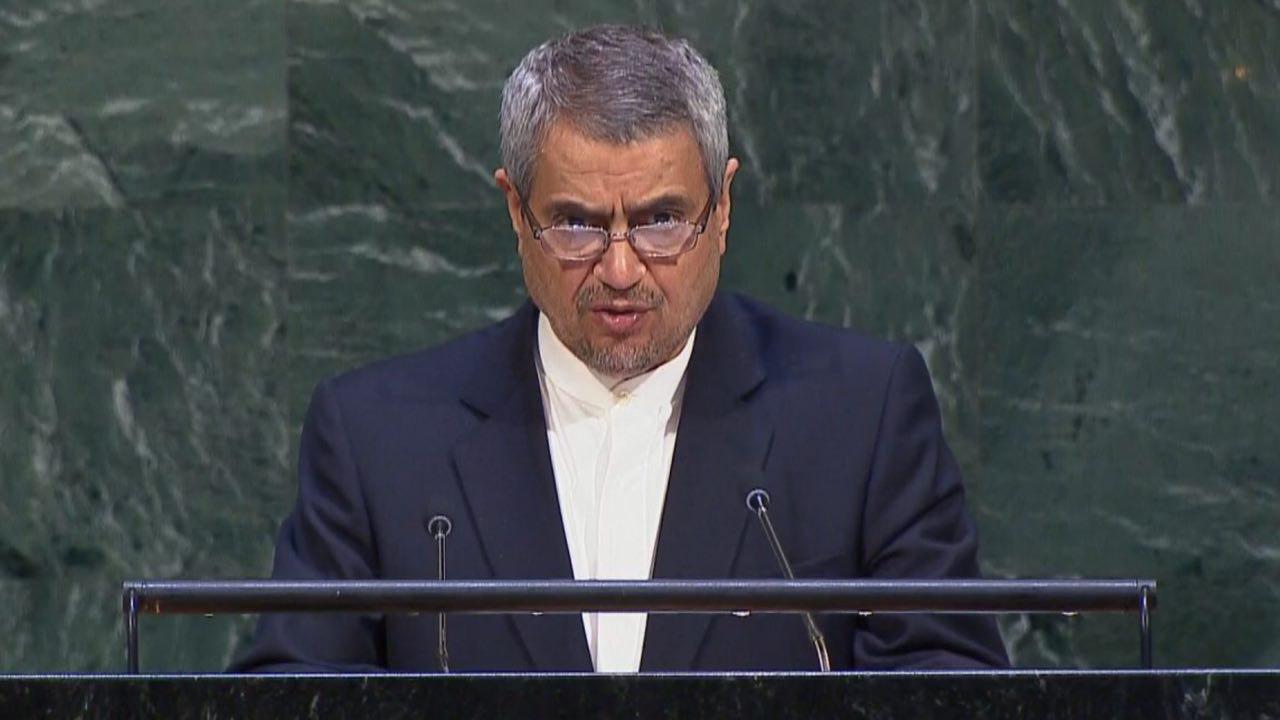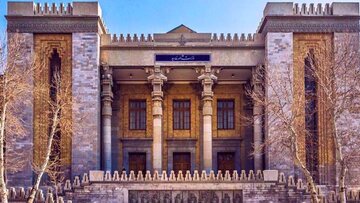'Iran continues to participate in the work of Tripartite Commission in order to plan for voluntary, safe, dignified and gradual repatriation of Afghan refugees,' Khoshroo said.
The full text of Khoshroo's statement reads as follows:
It is noteworthy to remind that the Islamic Republic of Iran is to continue its support for the fraternal people and government of Afghanistan as they move through this difficult period of their history to a stable, safe and prosperous Afghanistan.
I hope the adoption of this resolution will help to this end.
Countries in our region still suffering from an alarming surge in extremist violence; and a dramatic increase in drug production are threatening our societies.
Unfortunately, Afghanistan is one of the most affected by these problems. This has become a trend that the level of violence and the number of terrorist attacks have increased year after year since the US invasion in 2001, each year reaching its highest levels since the UN started recording these incidents and surpassing the previous record, he said. More than a decade after its invasion, Afghanistan, the region and the world is not any safer.
Deteriorating security in Afghanistan has its deeper roots and cannot be addressed solely through military strategies.
Today, the Afghan National Unity Government is in forefront of fighting terrorism. The sustained support of the international community is much more needed to support the Afghan Government in its fight against terrorism and extremism, as well as to face the complex security, economic, and development challenges. Iran reiterates its support for any Afghan-led peace process.
Strengthening our regional cooperation with Afghanistan is a priority and a major step to consolidate peace and development in the region.
We welcome and urge further efforts to strengthen the process of regional economic cooperation, including measures to facilitate regional connectivity, trade and transit, as highlighted in the resolution just adopted. In this regard, the Chabahar port project and the first consignment from India to Afghanistan through this Port that started some days ago is an important progress.
The challenges facing Afghanistan and our region are interconnected. We are very preoccupied by the findings of Afghanistan Opium Survey 2017 of UNODC report which indicate an 87% growth in opium production in the course of this year.
This information is especially alarming when we notice that narcotics provide a major source of income for the terrorist groups. Under-development, low-income and lack of economic opportunities provide fertile grounds and abundant recruitment opportunities for terrorist groups and drugs networks.
The international community needs to support the relevant international and regional projects and activities, including those carried out by Afghanistan, the Islamic Republic of Iran and Pakistan within the framework of the triangular initiative to counter narcotics;
For more than three decades Iran hosted millions of Afghan refugees sharing our public services and public education. This year alone, our schools are providing education to nearly 400 thousand undocumented Afghan students.
Iran continues to participate in the work of Tripartite Commission in order to plan for voluntary, safe, dignified and gradual repatriation of Afghan refugees.
The number of returnees continues to be the lowest recorded since the establishment of the voluntary return program in 2002, with many of the returnees chose not to return to their areas of origin, including many who settled in urban centers.
We welcome any effort to help overcome the main reintegration challenges faced by returnees and to formulate a Comprehensive Voluntary Repatriation and Reintegration Strategy.
Success in voluntary repatriation first and foremost depends on providing the reasonable needs of repatriated refugees in Afghanistan, and underscores the necessity for mobilizing more international support for this purpose. Stronger coordinated approach between the Government, donors and the United Nations and an overall strategy for addressing the combined needs of the displaced and returnees are crucial in making the repatriation of Afghan refugees more effective.
We support UNAMA as well as UN agencies in their efforts to provide development and reconstruction assistance to Afghanistan through a genuine commitment by the United Nations to a sustained partnership with Afghanistan, as set forth in Final Report of the Tripartite Review Commission on the United Nations in Afghanistan.
We need to utilize the UNAMA mandate and its good offices for strengthening national institutions and capacities in priority areas as requested by the Government.
/323
21 November 2017 - 09:47
News ID: 868167

(AhlulBayt News Agency) - Iran's Ambassador and Permanent Representative to the United Nations Gholamali Khoshroo delivered a key note statement at the UN to elaborate on Iran's support for Afghan refugees during past decades.




